Every year thousands of wildebeest moving to the Ndutu-Plains in the Ngorongoro Conservation Area in Tanzania to give birth of their calves.
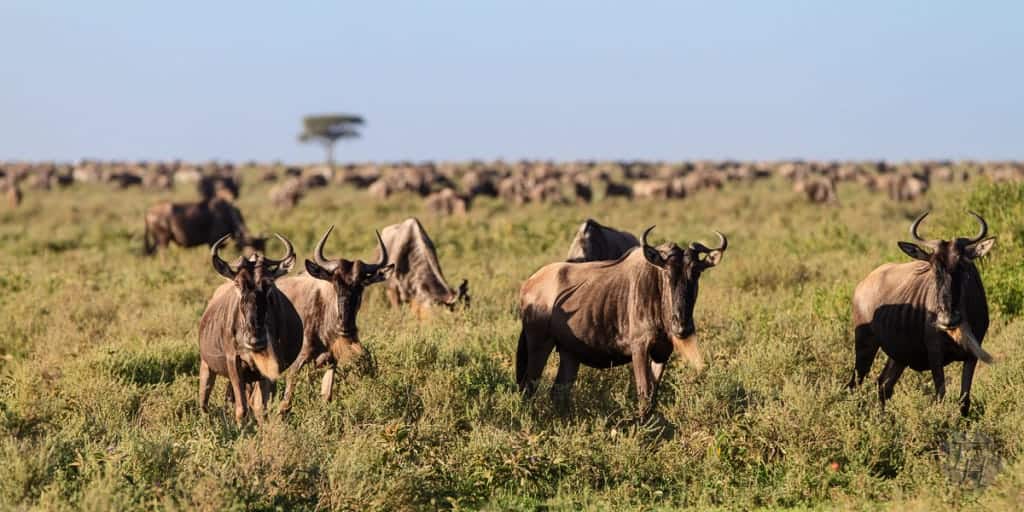
In the Ndutu-Plains they find best conditions, because the grass there has special minerals that are important in the first weeks for rearing the calves.
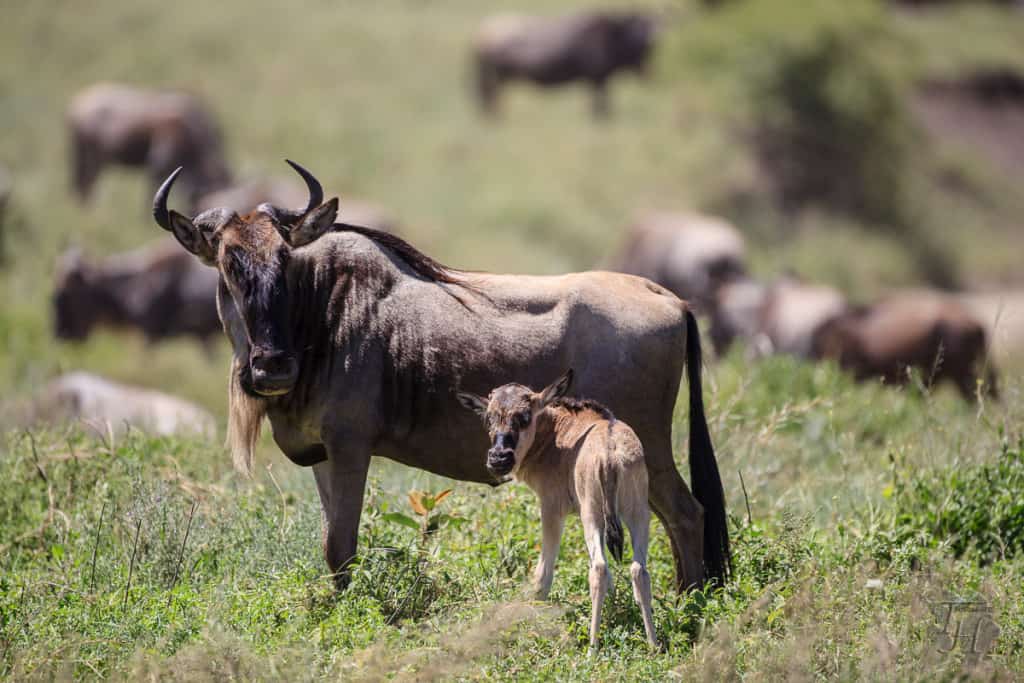
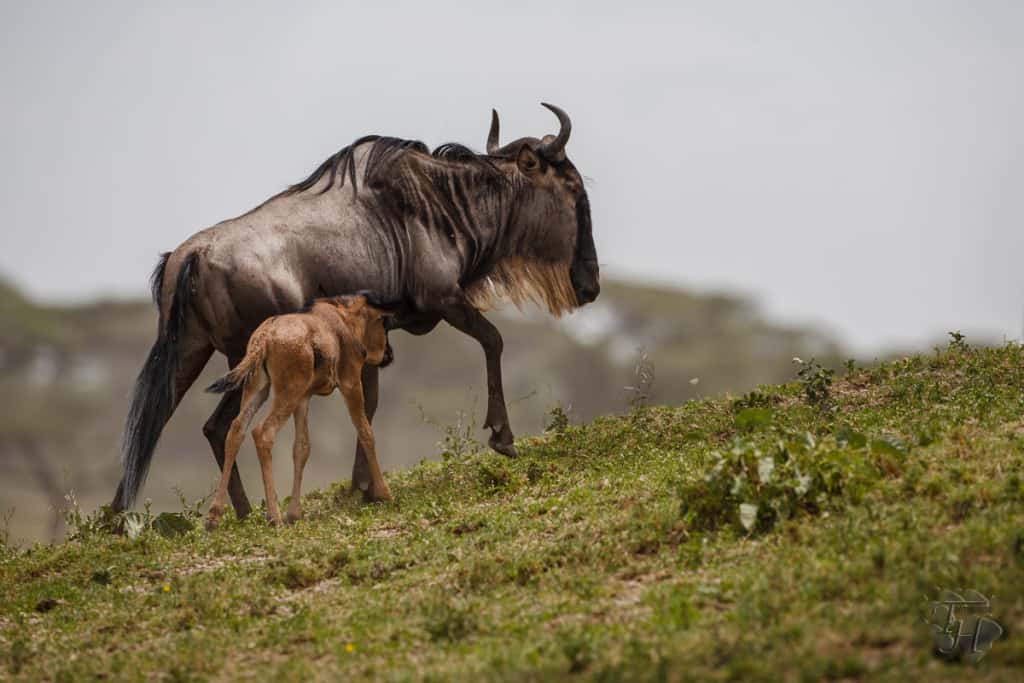
Within 3 to 4 weeks up to 500000 wildebeest calves will be born. Hardly on earth young calves has to walk to follow their mothers. They are always on the move, in search of fresh grass and water. If the calves lose their mother, it means certain death for them, because in the first few weeks the calves dependents on the mineral-rich milk. Adoptions by other wildebeest mothers are not common.
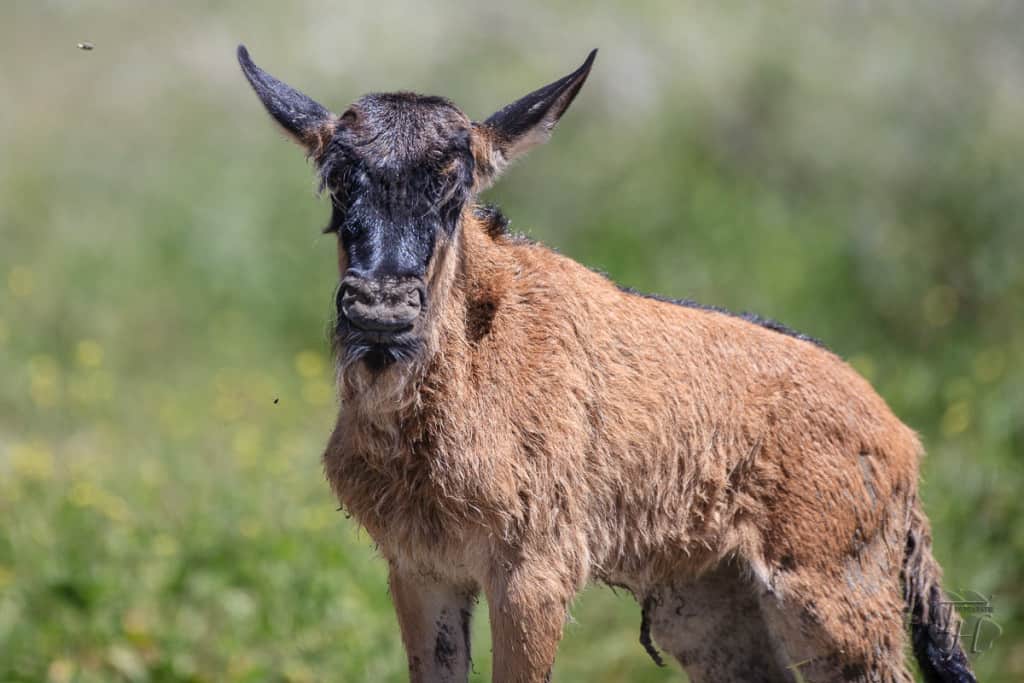
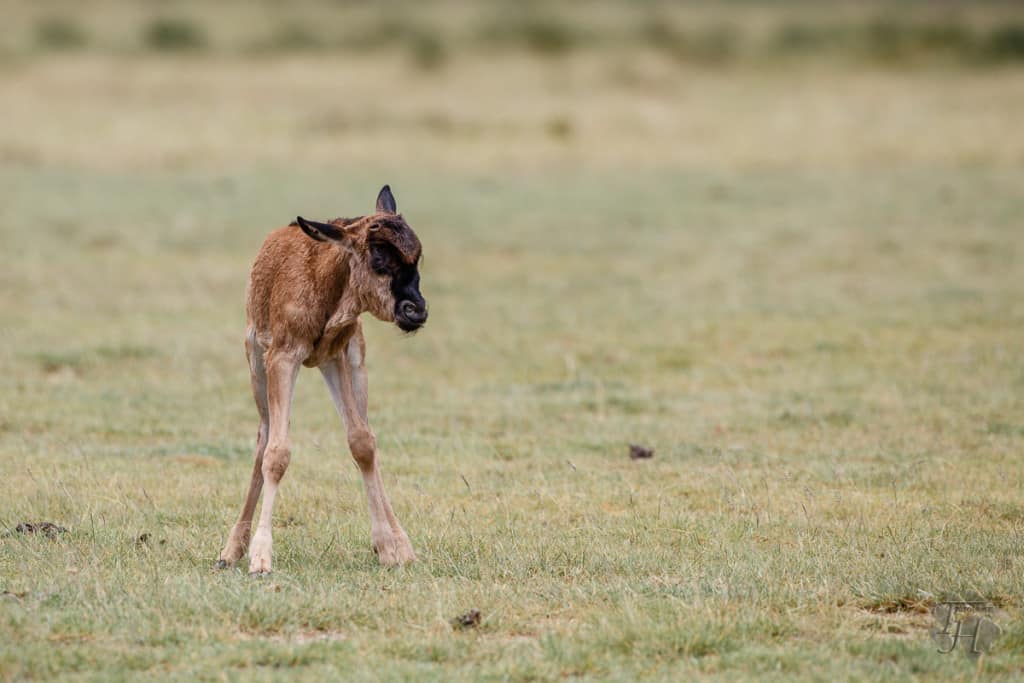
The time of the wildebeest births also means high season for all predators in the Ndutu-Plains. Prey there is now abundant. Predators now need to wait until the prey walk by them. Especially the new born calves are preferred by predators, as they are easy prey.
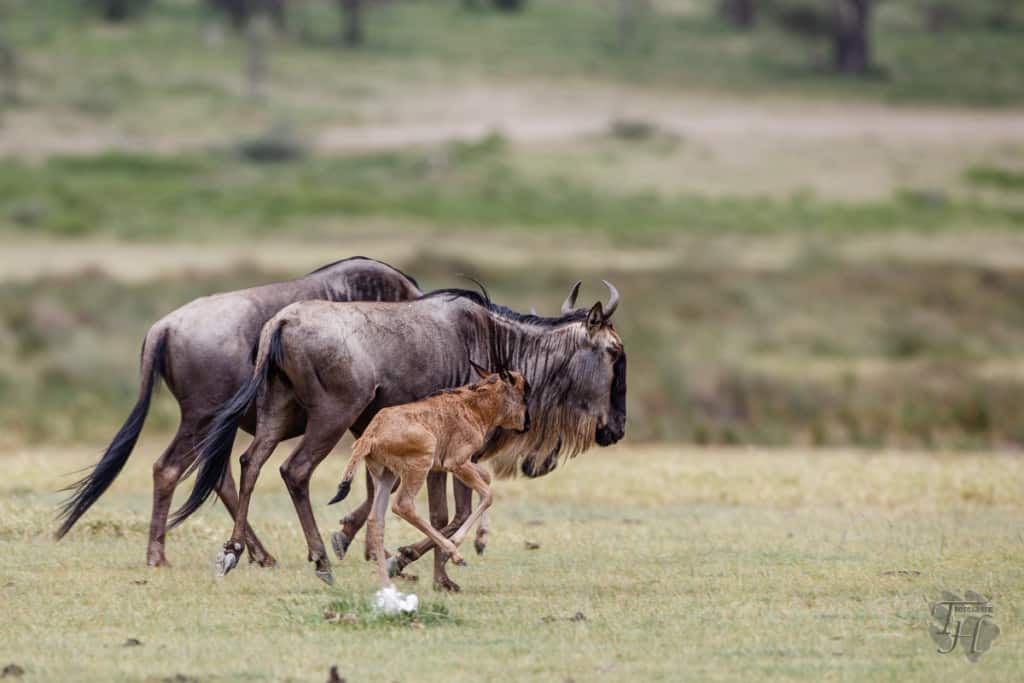
The calves have lack of experience, thus their life depends on the protection of their mother and the herd. Despite of the many predators, most of the calves survive the first few weeks of their life, because the abundance of prey is to much for the predators.
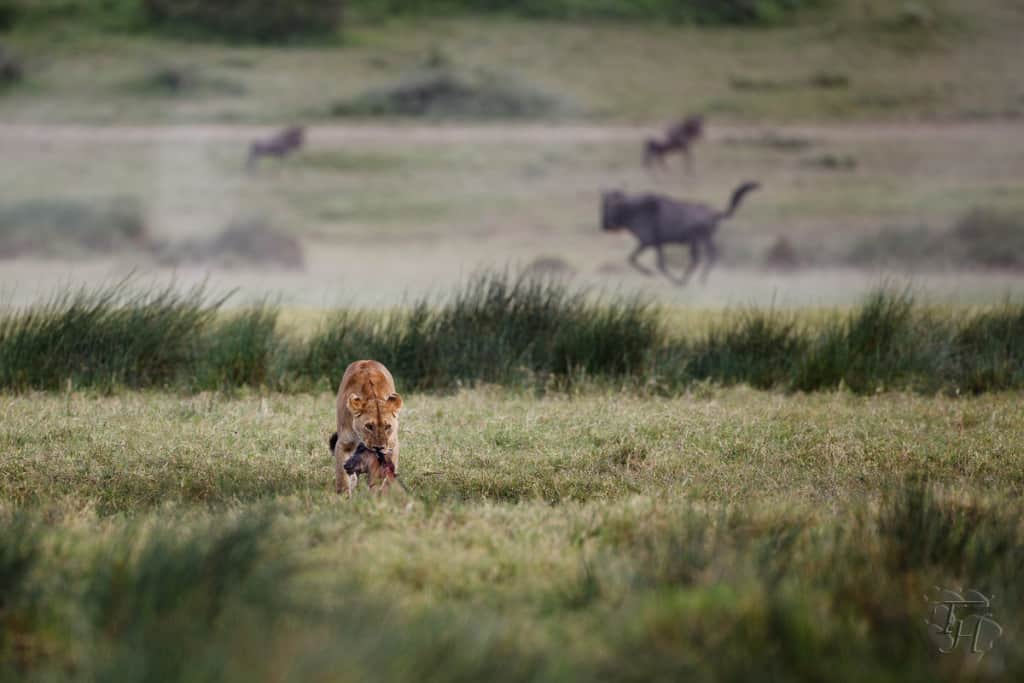
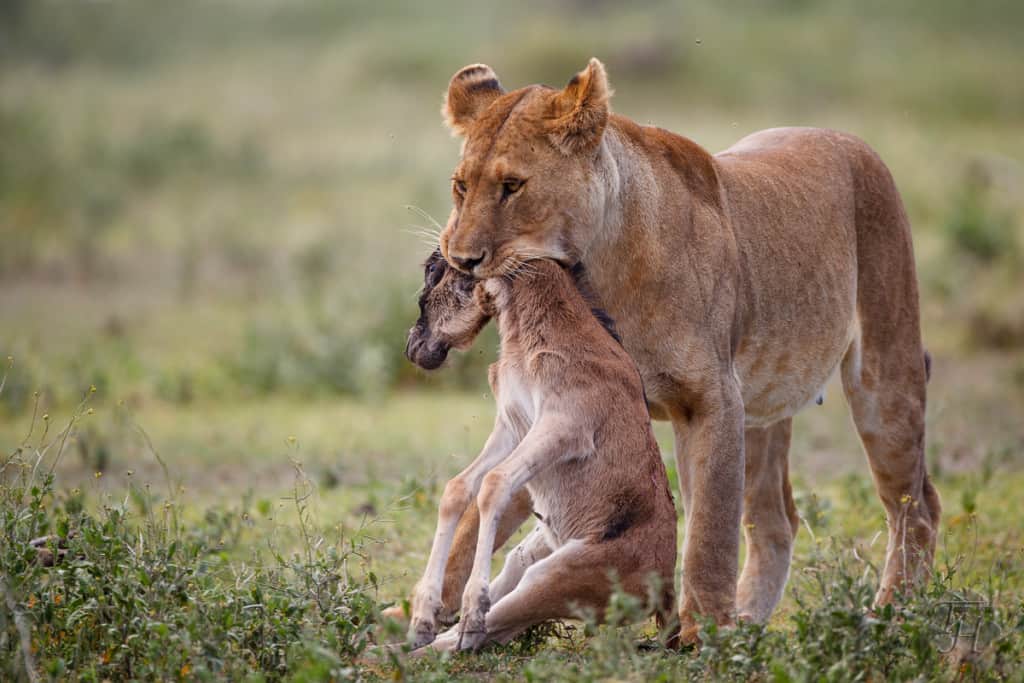
When the dry season arrives in the plains, the wildebeest move on and it begins the first great migration for the calves with new adventures and dangers, but this will be another story.
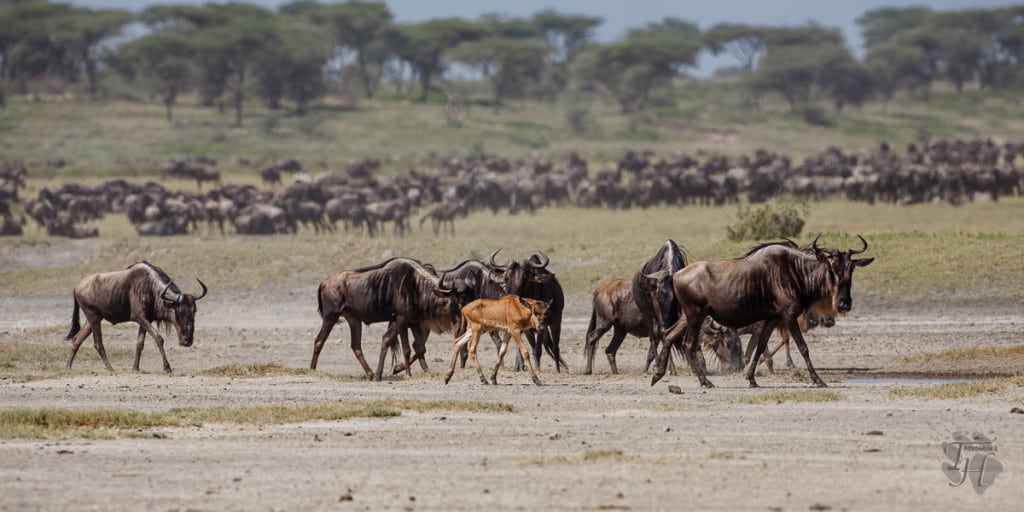
Thorsten Hanewald
interested in wildlife photografie, espacially african wildlife

Leave a Reply